If you’re looking for the best SBA lender, then you’ve come to the right place!
For many companies in the United States, it is paramount to acquire funding. Funding to expand operations, cover expenses, hire help, or even acquire new equipment has become so commonplace that the lending industry (worldwide) was estimated to be worth $6,875.4 billion in 2019. (Yahoo Finance)
Lately the US lending industry has been dominated by independent lenders and online marketplaces. But not all companies should reach out to independent lenders. In fact, the U.S. Small Business Administration made it possible for small companies to acquire financing partially guaranteed by the US government.
With that said, let’s determine how to find the best SBA lender possible for your business!
How To Find The Best SBA Lender
There are many options available for SBA lending, but not every lender is the same. There are important things to consider when evaluating the best sba lender for your company. Let’s go over key differences between each company that you might come across:
- Many companies do not have physical locations (branches) and operate 100% online. Decide if you are ok with that.
- Some companies require you to borrow a minimum amount. Make sure you confirm whether the amount you want is allowed.
- Large lending or banking institutions are often notorious for not giving you good customer service. This is usually the result of having too much business volume, not enough personalized customer care.
- Companies may have a maximum amount of money that can be loaned.
- Some companies do not lend money to specific states in the US.
- Although not usually the case, some lenders require you speak with one of their agents to get approval over the phone.
- The layout of different companies online can be overwhelming.
What Is An SBA Loan Used For? Are There Better Options?
Because many lenders want to see at least 2 years of prior business operating history, funding isn’t always easily accessible. With an SBA loan, part of the funding is guaranteed by the US government, and the qualifications are much lower.
With this kind of loan option, businesses with less than 2 years of history can apply for a loan, and there’s less paperwork involved.
Because every lender is different, there could be restrictions on what the funding can be used for. Usually companies use SBA loan for the following:
- Equipment
- Refinancing
- Vehicles
- Working Capital
- Inventory (Restocking)
- Other general biz needs.
Merchant Cash Advance is often used to cover these kinds of costs, but SBA is more accessible. That’s why MCA is preferred by companies with many credit card sales and established history. Startups or new businesses can’t qualify for it.
There are also direct lines of credit which can be used, but those often have high interest rates. Whereas SBA loans are less pricey and have easier terms usually.
What Are The Advantages Of An SBA Loan?
As aforementioned, most companies have their own terms and perks. Here are some of the most common advantages that SBA loans have:
- The loan terms can be extended for years. It is not uncommon to see loan terms above 5-10 years. (Real estate SBA loans can have 25 year terms)
- SBA loans can be in the thousands to the millions.
- Special terms often apply for inventory or working capital.
- Easy access. Because the government guarantees part of the loan, companies are generally more lenient to newer businesses.
Are There Credit Requirements For An SBA Loan?
Yes. Every lender usually has their own minimum credit score requirements. That being said, remember that a business credit score and personal credit score are not the same. Depending on what the lender wants, they may have better minimums for business credit. (Remember that a business without an EIN doesn’t qualify for its own credit score)
There are also some companies that will not qualify for an SBA loan based solely on the kind of trade they proliferate.
What Companies Can’t Get An SBA Loan?
Here are a few companies that can’t get an SBA loan:
- Any company involved in illegal activities.
- Real Estate Investment firms.
- Gambling companies.
- Insurance companies. (Not individual agents)
- Loan packaging companies.
- Speculation companies.
- Any business where the owner is on parole.
There are other companies that won’t qualify for an SBA loan, but the above listed are among the most common examples.
How To Start The Loan Process?
Remember that some loan companies have a longer loan application process. There are ways to expedite the submission time. Ultimately however, if you plan to research lending options yourself, you’re going to put a fair amount of time in.
The first steps to get a loan started is to do the following:
- Research which companies meet your criteria and time frame. (Reach out to lenders and find out what they offer)
- Submit an application verbally, in person, or over their website forms.
- Negotiate terms.
- Signing
- Follow up for completion.
There are also ways to make this process faster.
How To Make This Process Faster?
Using a loan broker is easily the most efficient way to acquire a loan. Without a broker, there are few ways that you can save time and money for yourself.
The broker has existing contacts, prior skills negotiating, paperwork, and can structure the deals more professionally than you probably can.
Without experience working with lenders, most businesses fall prey to scams, bad loan terms, and waste time applying with companies that can’t even help them.
Here at Business Lending Blueprint, we are teaching people how to become loan brokers. We teach students how to build businesses to replace their 9-5 jobs, and generate passive income.
Because that’s another thing brokers can do for you, they can structure a loan with better repayment terms.
Conclusion
If you’d like to learn how to become a successful, profitable business lending broker, then you’ve come to the right place. Click the button below and watch our free training that covers everything you need to know about this business model!
Regards,
Oz




